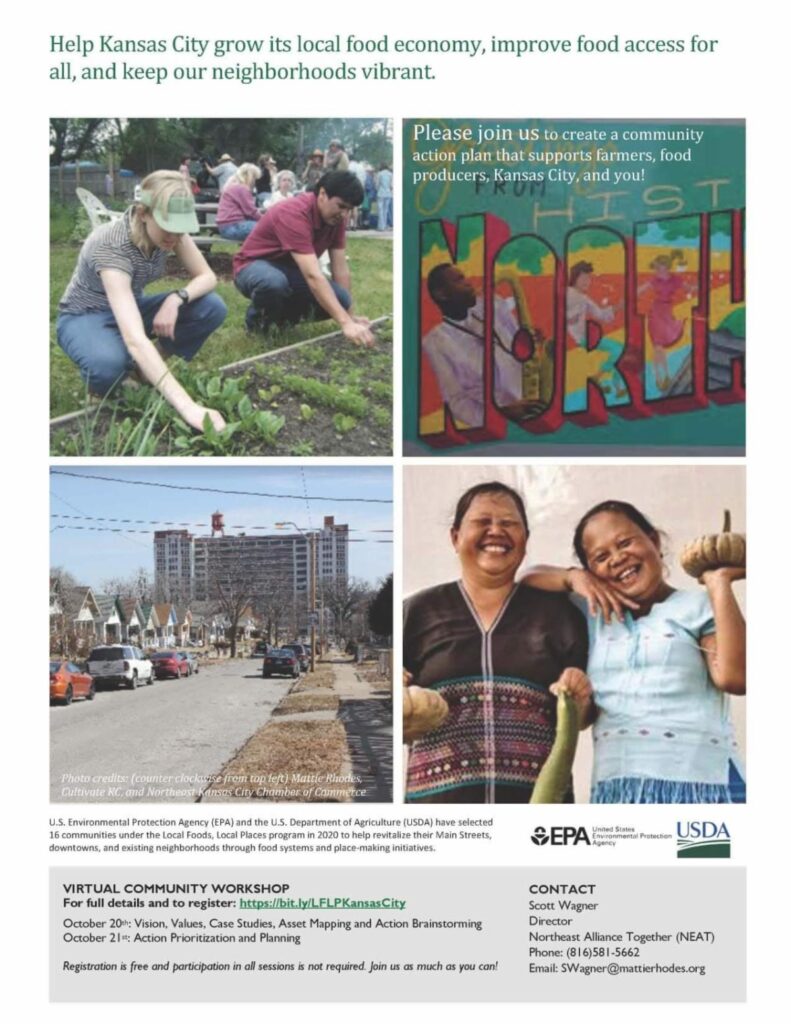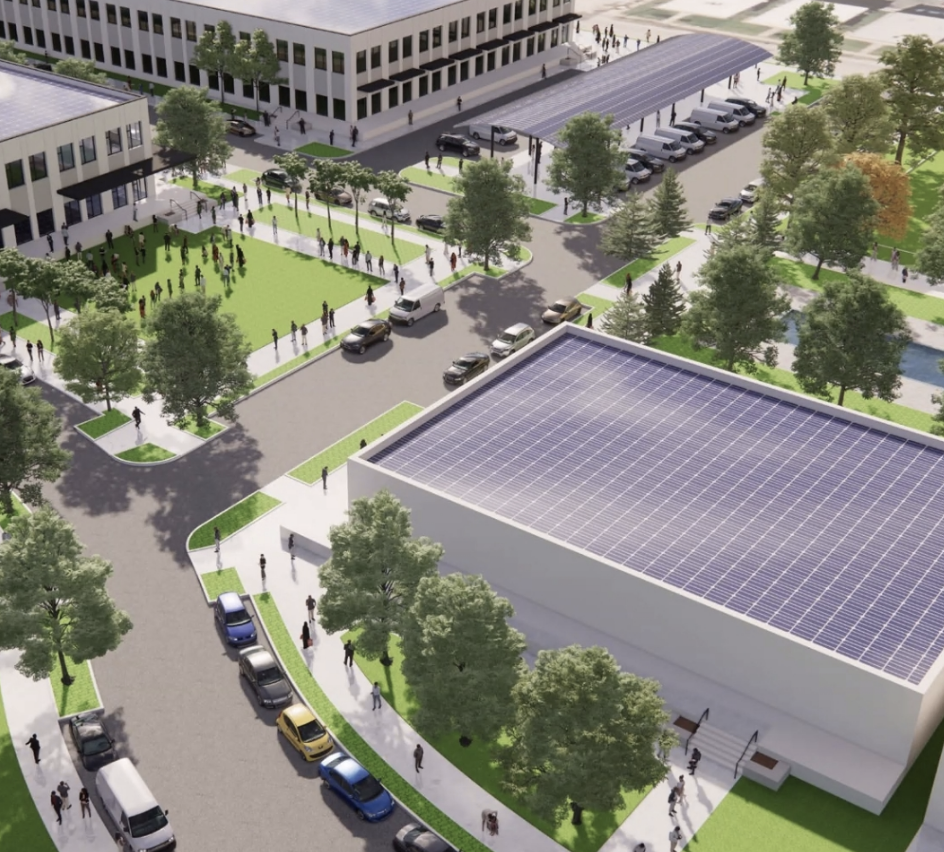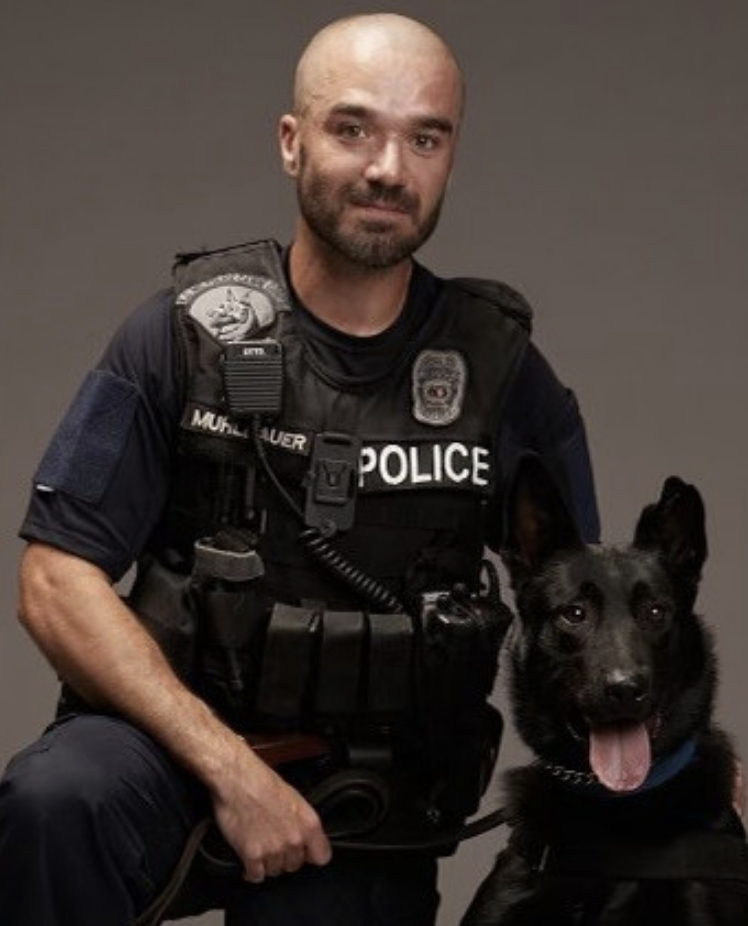
The U.S. Environmental Protection Agency (EPA) and the U.S. Department of Agriculture (USDA) have selected 16 communities under the “Local Foods, Local Places” program in 2020 to help revitalize their Main Streets, downtowns and existing neighborhoods through food systems and place-making initiatives.
The series of seven interconnected sessions is designed for interactivity, and will create a community action plan built by participants.
A virtual community workshop will be held on October 20 and 21, 2020. The first date will focus on Vision, Values, Case Studies, Asset Mapping and Action Brainstorming, while the second focuses on Action Prioritization and Planning.
Registration for the Virtual Community Workshop is free, and participants have the option of which sessions to choose.
The opening meeting on Tuesday, Oct. 20 at 9 a.m. will focus on “Vision and Values: Where are we going, what do we want to be?” The session will provide context for the Local Foods, Local Places planning assistance process in Kansas City, review the community’s goals, and hear participants’ values and vision for local food and place-making.
Session two will explore strategies and solutions and ask what can be learned from peer communities, followed by session three, which is small group exercises. The 90-minute exercise will challenge small groups to stimulate thought and exchange around what success looks like and the goals to help prepare for action brainstorming at session four.
To wrap up the first day of the workshop, session four will work to answer the question, “How are we going to make it happen?” Participants will create a to-do list to gather ideas for actions to advance the goals in one place for consideration before they are ranked during session five, which focuses on action prioritization.
The two-hour sixth session dives into the actions by detailing specific, measurable and achievable next steps with responsible parties.
Session seven, the wrap-up session, at 3 p.m. on Oct. 21, will include a presentation of the action planning results and review the next steps. The group will also collect feedback and input and reflect on the next steps.
According to the EPA, through Local Foods, Local Places, partner communities have worked on projects such as: opening year-round, downtown markets featuring foods from local farmers, planning cooperative grocery stores and other food access options to help revitalize small-town main streets, creating centrally located community kitchens or food hubs to aggregate and market local foods, starting business incubators to help entrepreneurs launch food-related businesses on main streets, making it easier for people to walk or bicycle to farmers markets and local restaurants, helping school children to grow their own food, and making healthy local food accessible to families, including via SNAP benefits, exploring ways to use Opportunity Zones in the context of local food system development and downtown revitalization and developing community gardens in walkable, transit-accessible places.
The Local Foods, Local Places Kansas City Steering Committee is comprised of Scott Wagner, Director of Northeast Alliance Together of the Mattie Rhodes Center, Bobbi Baker-Hughes, Executive Director of the Northeast Kansas City Chamber of Commerce, Gregg Lombardi, Executive Director of the Lykins Neighborhood Association, Gail Lozoff, Deputy Executive Director of the Lykins Neighborhood Association, Mark Gawron, Program Manager at Cultivate Kansas City, Lykins residents Mireya Rios Luz and Purity Kinyua, and Eddie Museletti, Owner of Express Stop.
Those interested in participating can sign up on the Northeast Chamber of Commerce website, nekcchamber.com.


















